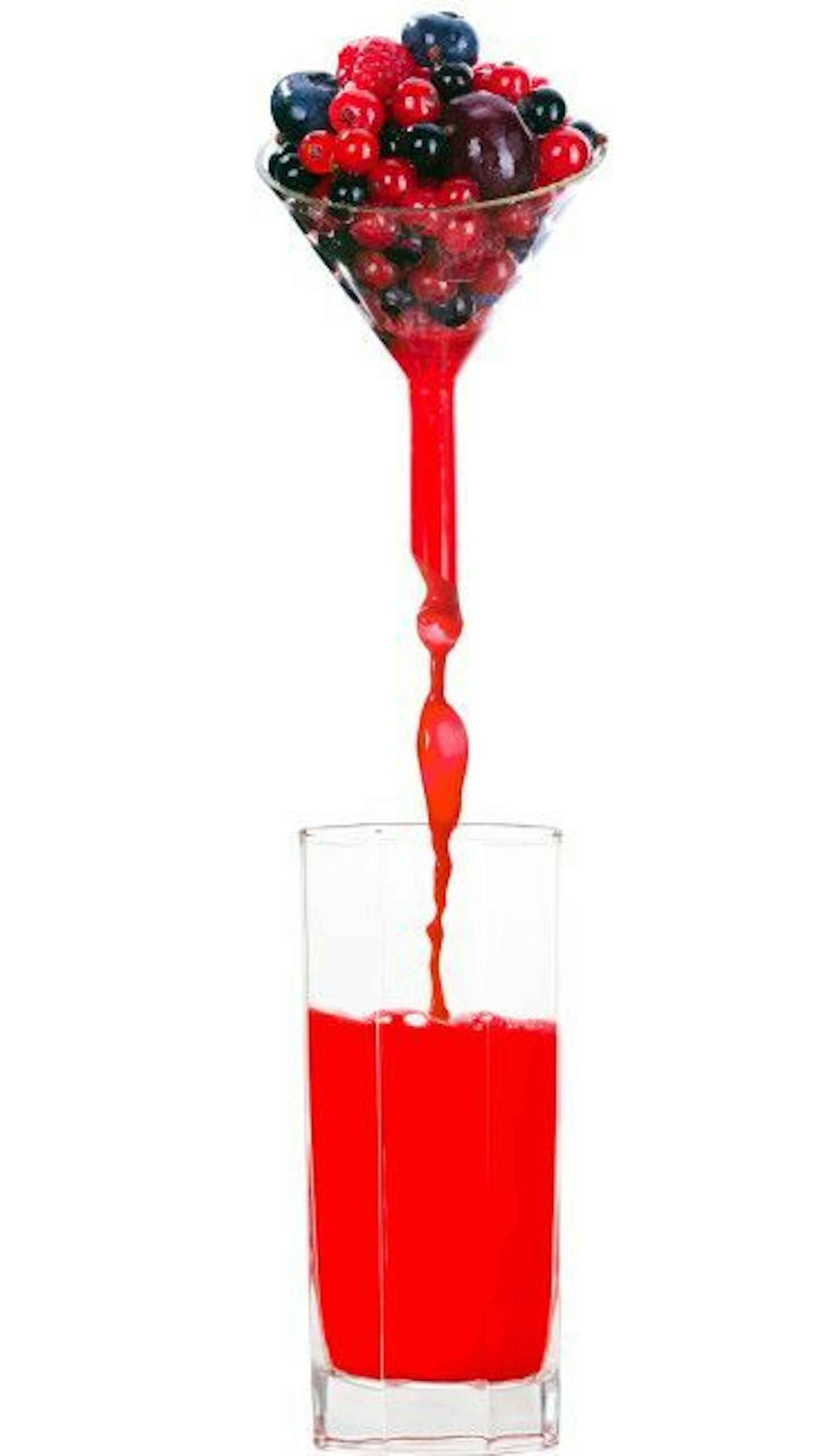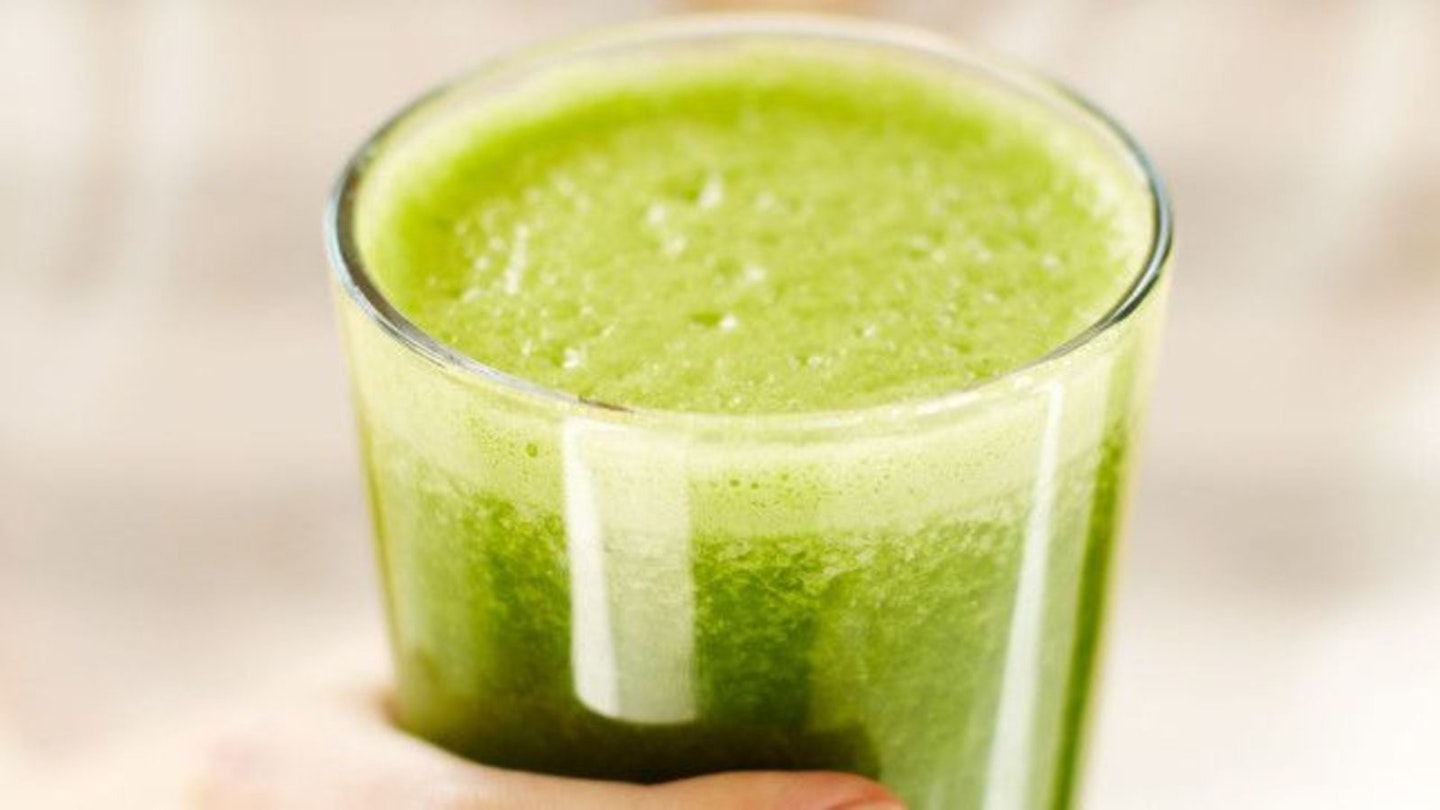What is a juice diet?
Juice diets – also often called juice detoxes or juice cleansing or juice fasting diets – involve drinking nothing but juices made from fruit and veg. As well as helping you lose weight, fans of juicing such as ‘Juice Master’ Jason Vale, and Joe Cross, star of a Channel 4 documentary called Fat, Sick and Nearly Dead who lost six stone in 60 days after drinking nothing but juices, also say this type of diet helps to cleanse your system, detox your body and kickstart your metabolism.
Which celebs follow juice diets?
Several celebs reportedly turn to juice diets from time to time, including Jessica Alba, Katie Price, Gwyneth Paltrow, Jennifer Anniston and models Miranda Kerr and Rosie Huntington-Whiteley. Katie Price also followed a juicing diet after the birth of son Junior and daughter Bunny.

How do they work?
You simply replace your normal diet with juices. These tend to be made from just fruit and veg, athough some plans also allow you to add ingredients such as honey or plain yogurt. Exactly how many juices you drink each day, depends on the specific plan you’re following. Because juice diets are so extreme, they tend to be short-term plans lasting for around three, five, seven or 10 days. Longer-term juice diets of 28 and 30 days often allow some fruit and veg to be eaten in the form of soup or salad.
How much weight can you lose?
Most juice diets result in rapid weight loss – Jason Vale, for example, has a diet that claims to help you lose 7lb in 7 days. The reason juice diets shift pounds so quickly is because they’re very low in calories. Unfortunately, any lost pounds tend to return rapidly once you go back to your normal eating habits.
Will I lose weight if I just add juices to my normal diet?
Adding juice to your usual diet without making any other changes could actually leave you heavier! Juices often contain around four pieces of fruit. With most fruits having around 50-70 calories each, that means you could have a juice with 250 calories. Two of those a day is an extra 500 calories – enough to gain 1lb in a week! Studies also show that liquids don’t fill us up as much as food, so there’s no guarantee that adding them to your diet will help you eat any less during the day.
What are green juices?
Green juices are made from ‘green’ veg such as spinach, kale, spring greens, broccoli, chard, rocket, watercress, courgette and herbs. As a result, they’re usually lower in sugar than fruit-based juices (although some green juices also include green apples and kiwi fruit). They also tend to be richer in calcium, iron, folate and vitamin K as green leafy veg are good sources of these nutrients.
Do I need to buy a juicer?
The idea behind juice diets is to make your own, so yes, you’ll need to invest in a juicer. But before buying the first one you come across visit a juice bar to see whether you really like DIY juices. If you’re still interested, research different juicers before buying – juicing machines vary tremendously in price, size, how they work, the types of fruit and veg you can use in them, and how easy they are to clean, so you need to pick one that’s right for you.

What are the pros of juicing?
Juice diets are a good way to boost your fruit and veg intake and get the recommended five portions a day (although the Department of Health says only one small (150ml) glass counts as one of your five-a-day, no matter how much you drink because juices are low in fibre). They also contribute to fluid intakes, important for helping to prevent dehydration. And they can boost intakes of certain nutrients such as vitamin C, folate and potassium, as well as antioxidants, which help to eliminate harmful molecules that can damage cells and potentially contribute to diseases like cancer and heart disease.
And the cons?
Whilst they’re rich in certain nutrients, juice diets are usually low in many others including muscle-strengthening protein, bone-friendly calcium and vitamin D and anaemia-fighting iron. Plus the low calorie intake of juice diets can leave you lacking in energy and give you side effects such as headaches, dizziness and bad breath. That’s why they’re usually only recommended for a short time. Added to this, the naturally occurring sugars and acids in fruit can damage teeth. Unlike whole fruit and veg, juices made with a traditional juicer are low in fibre, too – the bit that helps to fill us up! No surprise then that hunger – and boredom – are also likely. You can avoid the fibre issue by using a machine like the Nutribullet, which blends the whole fruit or veg into more of a smoothie consistency.
Any tips for juicing?
Use a variety of different coloured fruit and veg to get a good mix of nutrients and antioxidants, and don’t just focus on fruit – many veg make good juices, too, and are usually lower in natural sugars and less expensive. Also buy fruit and veg that are in season, as they tend to be cheaper. You could also use frozen fruit and veg to cut costs. If boredom kicks in, add herbs and spices such as basil, mint, ginger, cinnamon and vanilla extract to give different flavours. You can also give juices a nutrient boost by mixing them with natural yogurt, milk, flaxeed or nut butters.
Words: Juliette Kellow
Reach your weightloss targets and try out Closer Diets today!
